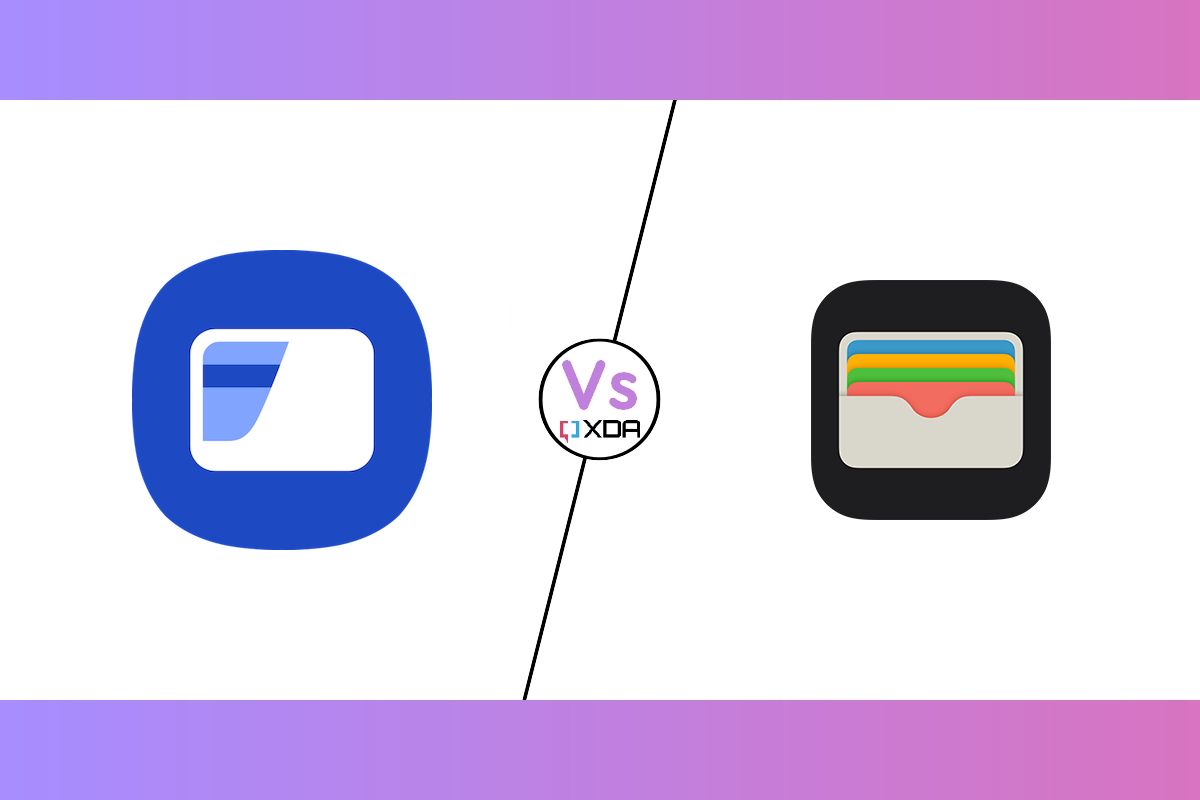The latest smartphones, including Apple's excellent iPhones, double as wallets. This means that many users no longer have to carry around physical wallets, purses, or even keys, thanks to the advanced integrations and increasingly expanding support. Two popular digital wallets are Samsung Wallet and Apple Wallet, with each being available on its respective company's smartphones. So, what's the difference between the two, and which is better? Let's take a look.
Samsung Wallet
Samsung Wallet is available on select Galaxy phones running Android 9 Pie or later, and you may have to download it from the Galaxy Store. Some of its features also require an eSE-enabled device. That's not to mention that right now, it's only available in select markets. Here's what you can store in the Samsung Wallet:
- Payment cards
- Loyalty/membership cards
- Digital IDs — such as a student ID or driver's license
- Passwords
- Digital keys (house, car, etc.)
- Crypto currency portfolio monitoring
- COVID-19 vaccination certificates
- Korean Air boarding passes
Expectedly, these features will vary depending on your devices and region of residence.
Apple Wallet
The Apple Wallet app is accessible on iPhone and Apple Watch. It has existed for a few years now, but over the past months, it has been evolving into a more feature-rich wallet. Here is a complete list of everything you can store in Apple's digital vault:
- Credit and debit cards where Apple Pay is supported
- Apple Cash and Savings accounts
- Tracking supported packages
- Loyalty cards
- ID cards
- Driver's license
- Employee ID
- Student ID
- Transit cards
- Entertainment venue tickets
- Boarding passes
- House keys
- Hotel keys
- Car keys
- COVID-19 vaccination certificates
- Custom cards created by users through third-party apps.
While Apple Wallet supports plenty of card types and varieties, a lot of them are exclusive to very few regions. So those who aren't living in first-world countries might find themselves unable to take advantage of most of what Apple Wallet has to offer.
Both wallets — head to head
Samsung Wallet and Apple Wallet are two very similar apps. The former company pretty much included all the features the latter offers. Of course, there are a few exceptions here and there — but for the most part, they serve the same purpose. For example, Samsung offers password support, while Apple supports that in the Settings app (instead of Wallet). Notably, though, Apple supports boarding passes from a wider variety of airlines — rather than just Korean Air.
Another significant difference is the crypto monitoring included in Samsung's solution. That remains absent from the Apple Wallet. Lastly, Apple introduced package tracking capabilities in the Wallet app on iOS 16. It allows you to keep an eye on what you've bought from select stores. Samsung Wallet seemingly doesn't offer a similar tool.
Final thoughts
I don't think anyone decides which phone brand to buy based on the included Wallet app. The comparison isn't meant to help you choose an ecosystem. Instead, it helps understand the similarities and differences of each of the two digital vaults. Ultimately, they're both iterations of the same concept. They've just been executed in slightly different ways.

